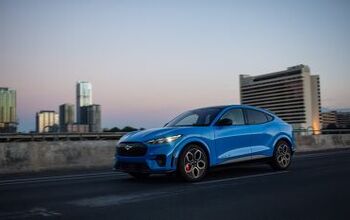Canadian Auto Plant Caught Up In Abortion Debate
Contract negotiations are looming for the Canadian Auto Workers, but that hasn’t stopped some union members of a Chrysler plant in Windsor, Ontario from wading into the abortion debate, something settled long ago and unlikely to ever be re-opened in Canada.
The mess began when an obscure parliamentarian from the ruling Conservative Party suggested that the legal definition of “human being” in Canada’s Criminal Code should be changed to include fetuses. CAW President Ken Lewenza then wrote a letter to Prime Minister Stephen Harper opposing the measure and re-affirming the union’s pro-choice stance.
The Prime Minister himself has declared that the abortion debate won’t be re-opened. But that hasn’t stopped the CAW from holding pro-choice rallies, as a means of countering pro-life protesters who have been picketing in Windsor. While there is a contingent of CAW members who are pro-life, most seem to be concerned about union issues rather than social issues.
Lewenza justified the political stance by stating
Of the rank and file members interviewed by the CBC, it seems that most have other, more pressing concerns – like the work contracts set to expire very shortly.
More by Derek Kreindler
Latest Car Reviews
Read moreLatest Product Reviews
Read moreRecent Comments
- Bd2 Ultimately, it comes down to price/whether it makes financial sense for buyers (right now, BEVs just aren't there, even with the tax credit). HEVs are finally seeing their place in the sun, decades after being a niche market; this is due to premium for HEVs having narrowed significantly with pure ICE, whereby buyers can recoup that after 2-3 years of ownership.
- MaintenanceCosts I've experienced three cars that were the first year of the model. The two I bought (first-off-the-boat 2004 TSX and midyear 2006 Civic) were both Hondas and were both flawless. The other one was my ex-stepmother's 1990 Land Rover Discovery. It was one of the very first Euro-spec models, a two-door with an asthmatic carbureted 3.5L V8 and a five-speed manual. Every part of the car broke at some point, including things like hatch hinges that really shouldn't break. It turned her off Land Rover forever, and her cars since have all been Subarus.
- MaintenanceCosts When I was living with my Bolt in a rental condo and charging from 120V in the garage, as soon as the association figured out what was happening, they asked me to pay $30 a month to cover the cost. That's pretty close to what I was using so I had no issue with it.
- SCE to AUX I've had mixed results with first-year cars:71 Pinto - good. 85 LeBron GTS - good. 96 Grand Voyager - good. 02 Passat B5.5 - bad. 05 Odyssey - bad. I also had a last-year car that was terrible (80 Bobcat), but most cars were crap then, anyway.
- Crown Go big or go home. Never understood the "economy version" that manufacturers make of a performance car.


































Comments
Join the conversation
I can see why they wadded in. Chrysler & abortion are synonymous.
China is where the Summer of Love went to after it left San Francisco in 1967. Mellow, peace, love, and socialist utopia. Right ? And Chairman Maobama is bringing it back.